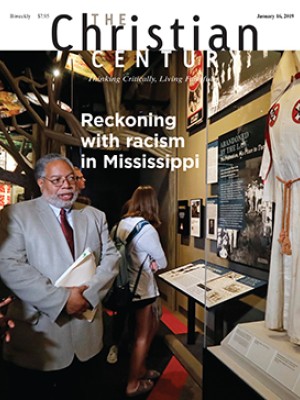
Words are composed of scant physical matter. Tiny scratches of graphite, minuscule droplets of ink, invisible rays from a screen, and sound waves emanating from human breath are about all the physical makeup they possess. However inconspicuous their material substance, words carry great significance. Every day we breathe something of our spirit into the consonants and vowels that constitute human speech. In some sense, we are our words and our words are us.
Most of us were taught somewhere in the course of our development that words have implications. The way we use them matters. They can coerce or liberate, create or destroy, motivate or paralyze. Thoughtfulness can make a life; thoughtlessness can break one. “If you get the right [words] in the right order,” says Tom Stoppard, “you can nudge the world a little.” If you get the wrong words in the wrong order, we might extrapolate, you can defile or even annihilate a relationship. Considerate words used with care form the substructure of trust between people.
Read our latest issue or browse back issues.
I think increasingly about matters of language as I watch the cumulative effect of the boorish talk in political life these days. Many are growing accustomed to hearing groups or individuals targeted with vile language. Vindictive and ugly rhetoric, as in “Lock her up”—or “Lock him up,” as some now want to say—is hardly innocent and without consequence. A peek at history reveals case after case of regime leaders and followers who perpetrated violence against specific populations after they were publicly branded in this way.
It’s not clear whether President Trump is aware of the historic resonance between his words and those of Joseph Stalin, who also liked to refer to the press as the “enemy of the people.” We have no way of knowing whether Trump links his own sweeping language labeling immigrants murderers, rapists, and “animals infesting our country” to Joseph Goebbels labeling Jews as filthy lice, or Pol Pot considering enemies as vermin. But using terms that humiliate or demonize an entire group of people is a time-tested method for dehumanizing them. It’s a sinister strategy for causing people to appear subhuman or even expendable.
It’s important to add that there’s no sign a plan for mass murder is in the works in this country. Nevertheless, stamping whole groups of people with degrading language is a way to create fear and breed violent acts. Dehumanizing rhetoric that purposely instills fear or paranoia is what I call failed speech. It’s corrupt speech—the opposite of that which exhibits care or engenders trust.
Language is the most distinctive thing about human beings. The way we select and assemble our words matters. This is why choosing words that foster courtesy, civility, or grace seems an almost sacred enterprise. If Jesus is serious when he says that our own words will someday justify or condemn us—“I tell you, on the day of judgment you will have to give an account for every careless word you utter”—it’s those careless words that should have our attention.
A version of this article appears in the print edition under the title “Words are us.”







